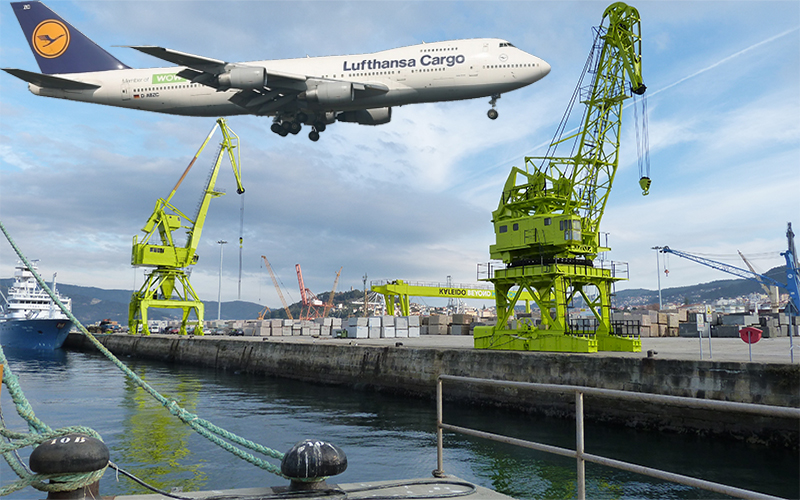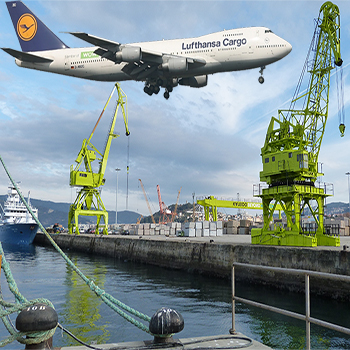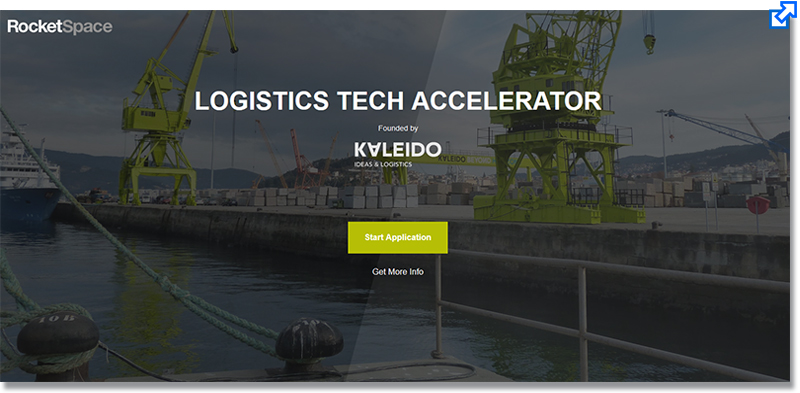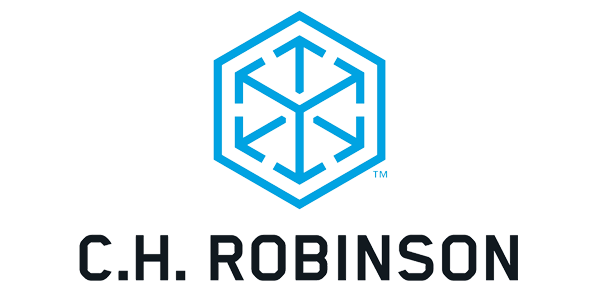Lufthansa Cargo Backs RocketSpace’s New Logistics Accelerator Program

RocketSpace, the big San Francisco co-working space that’s evolving into a matchmaker between corporations and innovative startups, said today it has signed up air freight giant Lufthansa Cargo as a partner in its first industry accelerator program.
RocketSpace will choose about six startups to participate in its Logistics Tech Accelerator, where they’ll work on new ways make global transport more efficient via digital technology.
The startups will collaborate with Lufthansa Cargo, a subsidiary of German airline company Lufthansa, and Vigo, Spain-based shipping logistics company Kaleido, which is a founding partner of the accelerator.
Other corporate partnerships are under discussion, RocketSpace founder and CEO Duncan Logan says. RocketSpace doesn’t disclose what the corporate partners are paying to support the program.
The Logistics Tech Accelerator is one of a series of accelerators RocketSpace plans to launch for specific industry sectors to help established companies revamp their operations by taking advantage of technology tools such as robots, financial technology, connected devices, and Web-based data storage.
The art of moving goods around the globe is ripe for innovation, Logan says, as manufacturers and retailers adjust to the on-demand economy and consumers take next-day delivery for granted.
“The consumer’s expectation is changing so rapidly,” Logan says. Recently, he was stunned to be told that a sofa he wanted to order would take eight weeks to arrive. “I cannot think of another thing I would have to wait eight weeks for.”
Technology is already being deployed by transport companies, and further efficiencies may come from the use of drones, connected devices, geolocation tracking, and digital payment methods such as cryptocurrencies, Logan says.
The first stage of the accelerator program, a five-week online curriculum on startup development and other topics, is set to begin in June. The startups, which can participate from any location in the world, will learn about logistics challenges from the industry partners. They’ll propose solutions that will be tested in a pilot phase with those partners. The program is set to conclude with a public demo day in September.
To qualify for the accelerator program, startups must have seed funding, a product on the market or close to a launch, and a technology focus relevant to logistics. The deadline for applications is May 12.
Logan says the two corporate partners on board so far have committed to support the Logistics Tech Accelerator for three years, and RocketSpace will run as many as four groups of startups through the program each year. RocketSpace will also launch one or more additional accelerators this year focused on other industry sectors, he says.
RocketSpace’s new role as an accelerator operator stems from an expansion of its mission over the past few years. The company began in 2011 as a small tech co-working space and grew into a two-building campus hosting more than 100 companies in San Francisco’s downtown financial district. RocketSpace has branched out by offering guidance to corporations eager to work with tech startups and upgrade their operations for the current business environment. The company’s corporate “innovation services” division - which includes consulting and hosting corporate tenants in the San Francisco co-working hub - is now a larger business than its original office-as-a-service mission, Logan says.
“I think this is going to be an industry in itself,” Logan says.
As an outgrowth of its corporate services work, RocketSpace started looking at accelerators and how they could better align the interests of established companies and tech startups. Logan says the company examined various models, including accelerators operated by corporations themselves to tap into innovative startups’ advances and perspectives. RocketSpace also looked at independent accelerators such as Techstars.
RocketSpace concluded that the best startups were reluctant to participate in corporate accelerators for various reasons. For one thing, being identified with a single company in an industry could “blight your potential with other corporations who are its competitors,” Logan says. Also, if a startup were trying to raise money from venture firms, the VCs would ask whether their corporate accelerator or the corporation itself was investing in the fundraising round. “If not, this could be a terrible signal,” Logan says.
Logan says startups and big companies work together freely in the mixing zone at RocketSpace without these negative consequences. “They were kind of using us as an independent shield,” he says. More than 100 corporations now have ties to RocketSpace, Logan says.
Taking the further step to develop its own formal accelerator programs, RocketSpace decided that its model would bring together several corporations from the same sector to work with startup companies in an “open innovation” environment. Logan says these cooperating competitors can learn from each other’s innovation efforts as well as from the startups. This contrasts with the traditional corporate pattern of keeping in-house innovation projects under wraps - sometimes for years - until they were ready to go to market, Logan says. By that time, technology had often passed them by, he says.
RocketSpace is betting that startups will find its independently run accelerators more attractive than closed, single-corporation accelerators. RocketSpace doesn’t take an equity share from participating startups. Industry partners can participate in a RocketSpace accelerator at a fraction of the cost of running their own accelerator programs because they share the costs with other companies, Logan says.
Alumni of the accelerators will become part of the growing RocketSpace network, and will be introduced to its corporate clients, Logan says. The more its corporate base grows, the better the insights it can offer to both large companies and startups, he says of the company’s intertwined activities.
“We see this as a bit of innovation ourselves,” Logan says.
Source: Xconomy
Related: Amazon Starting its Own Air Cargo Operation

Article Topics
C.H. Robinson News & Resources
Q&A: Mike Burkhart on the Recent Nearshoring Push Into Mexico Q&A: Mike Burkhart, VP of Mexico, C.H. Robinson C.H. Robinson introduces new touchless appointments technology offering C.H. Robinson President & CEO Bozeman provides overview of key logistics trends and themes at SMC3 JumpStart 2024 C.H. Robinson touts its progress on eBOL adoption by LTL carriers and shippers Retailers Pivot Supply Chain Strategy, Seek Red Sea Alternatives C.H. Robinson announces executive hire to run new Program Management Office More C.H. RobinsonLatest in Supply Chain
Microsoft Unveils New AI Innovations For Warehouses Let’s Spend Five Minutes Talking About ... Malaysia Baltimore Bridge Collapse: Impact on Freight Navigating TIm Cook Says Apple Plans to Increase Investments in Vietnam Amazon Logistics’ Growth Shakes Up Shipping Industry in 2023 Spotlight Startup: Cart.com is Reimagining Logistics Walmart and Swisslog Expand Partnership with New Texas Facility More Supply Chain













